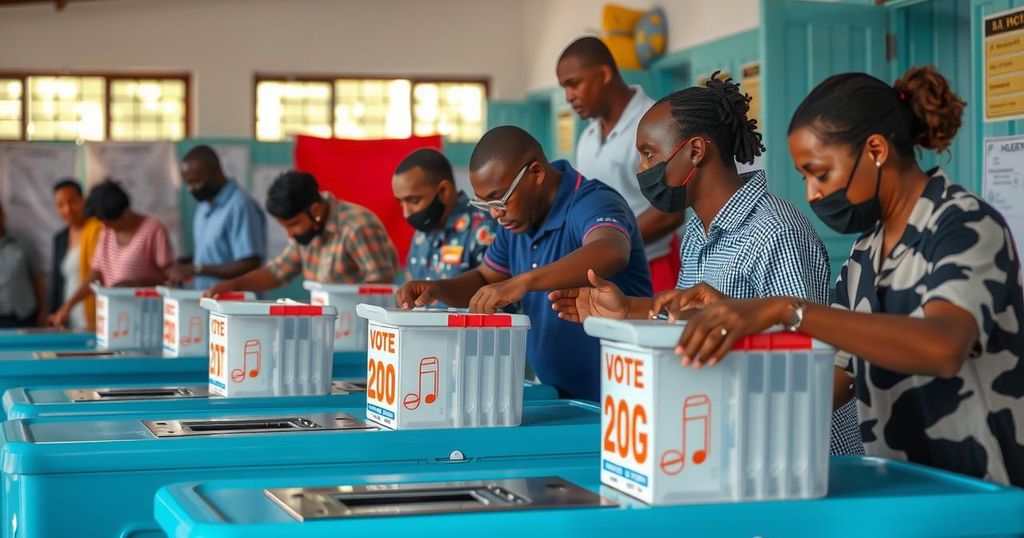Voters in Comoros are electing members to the 33-seat parliament amid claims of past electoral irregularities. President Azali Assoumani, in power since 1999, faces opposition accusations of authoritarianism and concerns over succession plans involving his son. Approximately 338,000 voters are casting ballots, with results expected by Friday. Some opposition parties are calling for a boycott, while others support participation to expose flaws in the regime.
Voters in Comoros are participating in the elections for the 33-seat parliament, taking place in the Indian Ocean archipelago. This election occurs one year after President Azali Assoumani’s re-election, which the opposition claims was marred by significant irregularities. Despite these allegations, officials affiliated with the ruling party have refuted such claims. Approximately 338,000 registered voters began casting their ballots early on Sunday, in a nation that last held parliamentary elections in January 2020. The Supreme Court selected nearly 100 candidates to run for office.
Criticism of President Assoumani has intensified, with accusations of authoritarianism and concerns regarding a potential dynastic succession involving his eldest son, Nour El-Fath. Assoumani has held power since 1999, following a coup, and has won three elections subsequently. In 2024, he extended substantial authority to his son, tasked with coordinating government operations. Some opposition factions, notably the Juwa party led by former President Ahmed Abdallah Sambi, who received a life sentence in 2022, have urged a boycott of the elections, while others have chosen to participate. “The Azali regime is weakened … by participating in these elections we are contributing to further exposing the flaws in its system and accelerating its inevitable fall,” stated Hamidou Karihila from the opposition Hope of the Comoros party. Preliminary results are anticipated by Friday.
The Comoros archipelago has a tumultuous political history, with power struggles marked by coups and allegations of electoral impropriety. President Azali Assoumani, having established his rule since a coup in 1999, has faced opposition criticisms regarding his governance style and allegations of democratic backsliding. Parliamentary elections are integral to the country’s political landscape, providing a platform for political parties, both ruling and opposition, to contest for influence and power. The ongoing complaints of irregularities and calls for boycotts reflect deep-seated concerns over the integrity of the electoral process and the future political direction of Comoros.
The parliamentary elections in Comoros signify a crucial moment in the nation’s political landscape amidst ongoing controversies surrounding President Assoumani’s leadership. While participation in the elections is perceived as a means to challenge the existing regime, the backdrop of accusations of electoral fraud and authoritarianism raises questions about the legitimacy and transparency of the electoral process. As results are set to be revealed shortly, the implications of this election will likely resonate throughout Comoros’s political terrain.
Original Source: www.begadistrictnews.com.au






